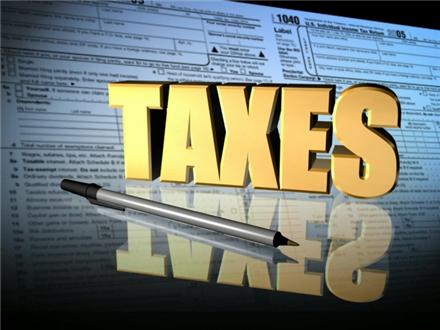Taxes: There’s a growing disconnect between the economic benefits spinning off the Republican tax cuts and the poll numbers. Is the public going sour of them? Or is this just more wishful thinking on the part of Democrats and the liberal press?
Just the past week saw three more examples of the tax cuts’ benefits.
Item 1: Kroger announced that it was accelerating wage hikes, increasing the company’s 401(k) match, enhancing benefits, and expanding employee discounts. All, it said, thanks to the Republican tax reforms. Kroger joins more than 500 other companies who’ve extended bonuses, wage hikes, or improved benefits to more than 4 million workers in the wake of the law’s sharp reduction in corporate tax rates.
Item 2: A Gallup poll found that the public thinks the tax code is more fair today than it was before the Republican tax cuts took effect. Just 42% now say middle income families pay too much in income taxes, down from 51% last year. And 26% say upper-income families pay their fair share, up from 24% last year. What’s more, nearly a quarter (24%) say that corporations pay their fair share, up from 19% a year ago. These results are startling, given that Democrats have spent months claiming the tax cuts were nothing but a giveaway to corporations and the rich.
Item 3: The Congressional Budget Office sharply increased its forecast for GDP growth this year as a result of the tax cuts — raising it from 2% to 3.3%. It expects GDP growth next year to be 2.4%, up from 1.5% before the tax cuts took effect. This extra growth will end up paying for most of the cost of the tax cuts, the CBO says.
Yet despite continued good news about the tax cuts — and the economy in general — several polls show tax-cut support softening. Just 27% say the tax cuts are a good idea, down from 30% in January, according to the NBC/Wall Street Journal poll. The Quinnipiac Poll has approval at 36%, down from 39% in February. The Monmouth poll shows support at 41%, where it was 44% in January. And while 48% back the tax cuts in the latest New York Times’ poll, support was 51% in February.
This slippage is music to Democrats’ ears and, according to the Washington Examiner, is “alarming Republicans counting on the law to save the party’s vulnerable House majority.”
The Examiner says Republicans are privately grumbling that President Trump dropped the ball on promoting the tax cuts in recent weeks, shifting his focus instead to tariffs and immigration. It quotes Ohio Rep. Steve Stivers, chairman of the National Republican Congressional Committee, who said, “People aren’t talking about it enough, and when people aren’t talking about it enough, that’s a problem.”
There’s no doubt some truth to this. Support for the tax cuts went up amid daily reports of worker bonuses and bigger paychecks. But as that news subsided, support drifted. The GOP’s cave-in on spending, and the resulting increases in deficits, have no doubt also affected the polls.
Trump hasn’t helped matters much, either. He recently went to West Virginia for an event billed as about his tax plan, but he tossed his prepared remarks — calling them “boring” — and spent most of his time going on about trade, border security and other topics.
This PR vacuum has let Democrats — with the aid and comfort of a hopelessly biased news media — continue to peddle their blatant falsehoods about taxes without sufficient opposition.
A Winning Hand
Even so, the claim that the tax cuts are increasingly unpopular, or that this poses a political risk for Republicans, should be taken with a very large grain of salt.
As we’ve pointed out in this space on numerous occasions, when described as “the Republican tax cuts” — as most surveys do — they tended to poll badly. But whenever pollsters asked about actual specifics in the tax bill, support sharply rose.
What’s more, the Gallup findings make it clear that the Democrats’ attempt to demonize the tax cuts as unfair to the middle class have utterly failed. And their promises to raise taxes the first chance they get aren’t likely to sway many voters.
Whatever the polls say today, Republicans have a winning message for the November midterms: The tax cuts aren’t just letting Americans keep more of their money. They are a key part of the GOP’s pro-growth strategy, which is already producing a stronger economy, creating more jobs, and providing more opportunity.
Republicans just need to proclaim it, early and often and with pride.
